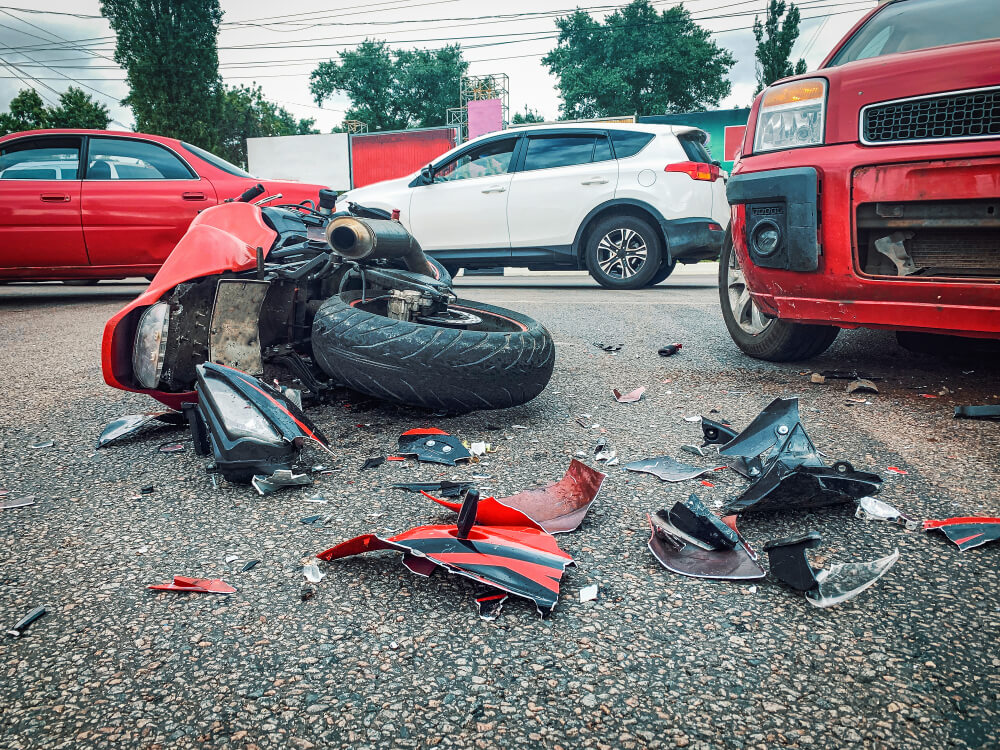
Motorcycle accidents can lead to serious, life-altering injuries and financial burdens. Many victims wonder, how much is the average motorcycle accident settlement in Florida?
While the average settlement typically ranges from $50,000 to $200,000, cases involving catastrophic injuries or wrongful death can exceed $1 million. However, the exact amount varies based on several factors, including the severity of injuries, medical expenses, lost wages, and the degree of fault involved.
With extensive experience handling motorcycle accident cases in Florida, Eric Rosen, founding attorney of Rosen Injury Law, has helped countless victims navigate the complexities of personal injury claims. His deep understanding of Florida law and dedication to securing maximum compensation for his clients makes him a trusted authority on motorcycle accident settlements.
Key Factors Influencing Motorcycle Accident Settlements in Florida
Several key factors will determine the value of your motorcycle accident settlement:
1. Severity of Injuries
The severity of your injuries is the most important factor in calculating your settlement. Motorcycle accidents often result in serious injuries such as:
- Traumatic brain injuries (TBI)
- Spinal cord injuries
- Severe road rash
- Amputations
Victims who suffer from catastrophic injuries or long-term disabilities are likely to receive higher settlements due to the need for ongoing medical care, rehabilitation, and lifestyle changes.
2. Medical Expenses
Medical costs are often the largest portion of a motorcycle accident settlement. These can include:
- Emergency room visits
- Surgeries
- Physical therapy
- Rehabilitation
- Future medical treatments
A comprehensive settlement will account for both current and future medical expenses. The higher the medical costs, the larger the settlement is likely to be.
3. Lost Wages and Reduced Earning Capacity
If your injuries prevent you from working, your settlement may include compensation for lost wages. Additionally, if you’re unable to return to the same level of employment due to your injuries, you could receive compensation for reduced earning capacity. The more severe your injuries, the more this factor will increase your settlement.
4. Pain and Suffering
In addition to financial losses, motorcycle accident victims can recover compensation for pain and suffering. This covers both the physical pain and emotional distress caused by the accident. The more severe your injuries, the greater the potential compensation for pain and suffering.
5. Degree of Fault
Florida operates under a comparative negligence system, meaning your compensation could be reduced if you are partially at fault for the accident. For example, if you are found to be 20% at fault, your compensation will be reduced by 20%.
6. Insurance Policy Limits
In some cases, the at-fault driver’s insurance policy limits may cap the amount you can recover. If the at-fault driver only has a policy limit of $100,000, that may be the maximum you can recover unless other sources of compensation are pursued, such as underinsured motorist coverage.

Florida’s No-Fault Exemption for Motorcyclists
Unlike car drivers, motorcyclists in Florida are not required to carry Personal Injury Protection (PIP) insurance. This exemption allows motorcycle accident victims to pursue compensation directly from the at-fault driver’s insurance, which can lead to higher settlement amounts.
Comparing Settlement Ranges
To give you a better understanding of potential settlement amounts, here’s a comparison table outlining the typical settlement ranges based on the severity of injuries:
| Injury Type | Typical Settlement Range | Factors Influencing Settlement |
|---|---|---|
| Minor Injuries | $10,000 – $50,000 | Medical bills, short recovery time |
| Moderate Injuries | $50,000 – $150,000 | Lost wages, physical therapy, rehab |
| Severe Injuries | $150,000 – $500,000 | Long-term care, surgeries |
| Catastrophic Injuries | Over $1 million | Permanent disability, future costs |
This table highlights how settlements vary based on injury severity and other factors. For instance, victims with minor injuries typically receive smaller settlements, while catastrophic injury cases often result in multi-million dollar settlements due to the significant impact on the victim’s quality of life and ability to work.
Why Hire a Florida Motorcycle Accident Attorney?
Motorcycle accident claims can be complex, and navigating the legal process without an attorney can result in lower settlements. An experienced personal injury attorney can help you:
- Maximize your settlement by calculating all damages, including medical expenses, lost wages, and pain and suffering.
- Negotiate with insurance companies that often offer low settlements. A lawyer will ensure you are treated fairly.
- Take your case to court if necessary: If negotiations don’t result in a fair settlement, your attorney can file a lawsuit and represent you in court.
Take Control of Your Recovery
If you’ve been injured in a motorcycle accident, you don’t have to face the legal process alone. Rosen Injury Law is dedicated to fighting for the compensation you deserve, and with no fees unless we win, you can focus on your recovery while we handle the rest.
For a free no-obligation consultation, call us today at (954) 787-1500. Our experienced team is ready to discuss your case and help you secure the compensation you need to move forward.
Related Content: Which Florida Motorcycle Laws Can Impact Damage Awards in an Injury Settlement?